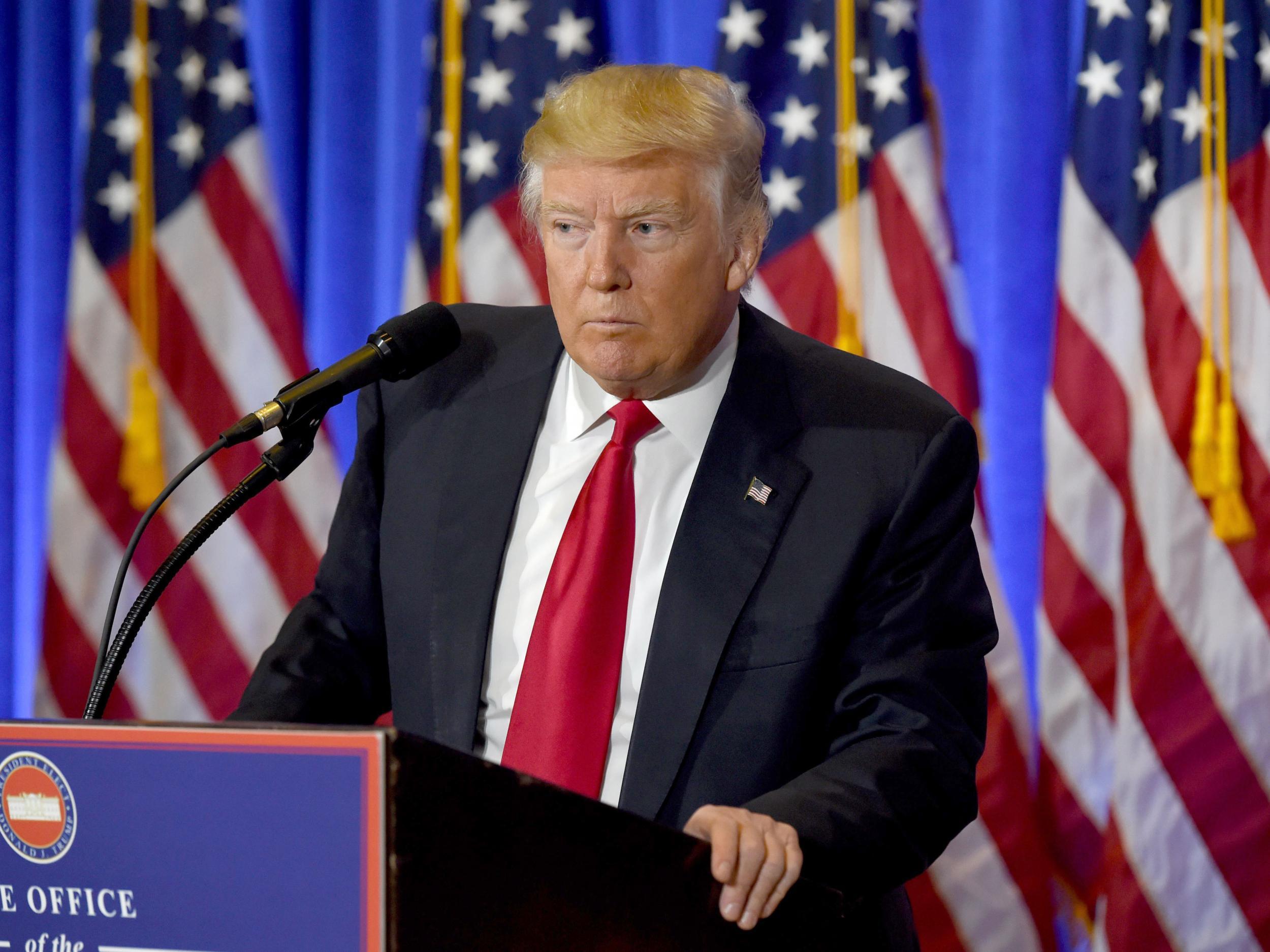The dodgy Donald Trump dossier reminds me of the row over Saddam Hussein and his fictitious weapons of mass destruction
I talked to Iraqi defectors in the 1990s who claimed to have plenty of information about WMDs and gossip about Hussein’s family affairs. It did not take long to work out that they were making it up when they produced convincing but uncheckable details


Your support helps us to tell the story
From reproductive rights to climate change to Big Tech, The Independent is on the ground when the story is developing. Whether it's investigating the financials of Elon Musk's pro-Trump PAC or producing our latest documentary, 'The A Word', which shines a light on the American women fighting for reproductive rights, we know how important it is to parse out the facts from the messaging.
At such a critical moment in US history, we need reporters on the ground. Your donation allows us to keep sending journalists to speak to both sides of the story.
The Independent is trusted by Americans across the entire political spectrum. And unlike many other quality news outlets, we choose not to lock Americans out of our reporting and analysis with paywalls. We believe quality journalism should be available to everyone, paid for by those who can afford it.
Your support makes all the difference.I read the text of the dossier on Donald Trump’s alleged dirty dealings with a scepticism that soon turned into complete disbelief. The memo has all the hallmarks of such fabrications, which is too much detail – and that detail largely uncheckable – and too many names of important people placed there to impress the reader with the sheer quantity and quality of information.
I was correspondent in Moscow in the 1980s and again during the first years in power of Vladimir Putin. Every so often, people would tell me intriguing facts about the dark doings of the Kremlin and its complicity in various crimes, such as the infamous apartment block bombings in 1999. But my heart used to sink when the informant claimed to know too much and did not see that what they were saying contained a fatal contradiction: Putin and his people were pictured as unscrupulous and violent people, but at the same time they were childishly incapable of keeping a secret damaging to themselves.
The conclusions reached in the Trump dossier similarly claim to be based on multiple sources of information where, in the nature of things, they are unlikely to exist. The dossier cites at least seven of them. “Speaking to a trusted compatriot in June 2016 sources A and B, a senior Russian Foreign Ministry and a former top level Russian intelligence officer still active inside the Kremlin respectively, [said that] the Russian authorities had been cultivating and supporting US Republican presidential candidate, Donald TRUMP, for at least five years.”
I obviously failed as a correspondent when I was in Russia because it turns out that Moscow is choc-a-bloc with fellows in senior positions willing to blow the gaff on the Kremlin’s deep laid plans. A and B, despite achieving high rank, apparently remain touchingly naive and more than willing to make revelations that, if known, would get them imprisoned or shot in short order.
Reading the papers on Trump brought back memories of talking to Iraqi defectors in the 1990s who claimed to have plenty of information about Saddam Hussein’s weapons of mass destruction (WMD) and gossip about his family affairs. It did not take long to work out that they were making it up when they produced convincing but uncheckable details about the doings of some of the more dangerous and suspicious people in the world, with whom the defectors claimed have had frank and revealing conversations.
In its determination to damage Trump, the US press corps has been happy to suspend disbelief in this dubious document. The former member of MI6, Christopher Steele, reportedly has a high reputation in espionage circles and was stationed in Moscow 20 years ago. The New York Times is unworried by his consequent inability to travel to Moscow “to study Mr Trump’s connections there”. This is where the famed MI6 tradecraft proved so useful. Steele is said to have “hired native Russian speakers to call informants inside Russia and made surreptitious contact with his own connections in the country as well.”
The word “contact” is a useful word for journalists because it could mean a highly-placed friend or, alternatively, it might refer to some lowly freelancer who is being paid to supply information. Having Russian speakers call up Russians in Russia is an astute move, though it presupposes that FSB does not monitor foreign phone calls to people with sensitive information.
I suspect that those Iraqi defectors who used to tell me tall tales about WMD and the home life of Saddam Hussein would have dreamed up a more convincing story than this.
Join our commenting forum
Join thought-provoking conversations, follow other Independent readers and see their replies
Comments